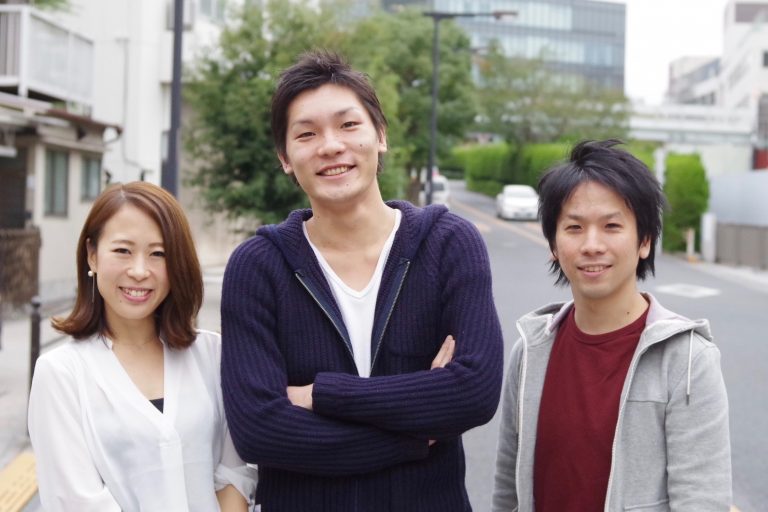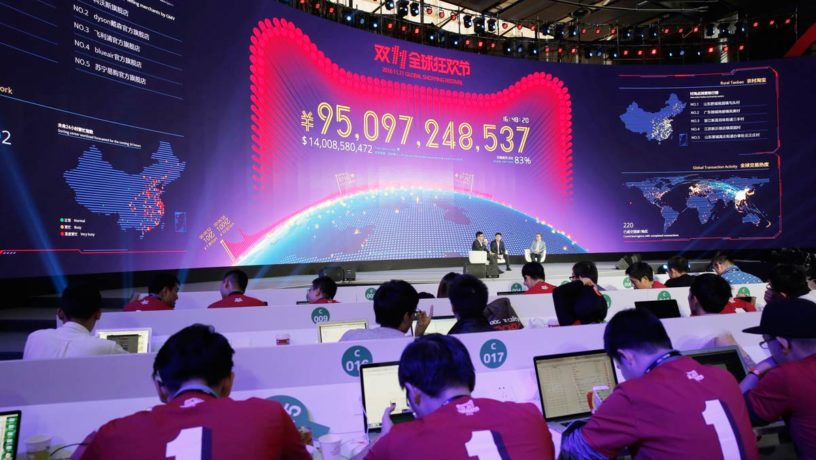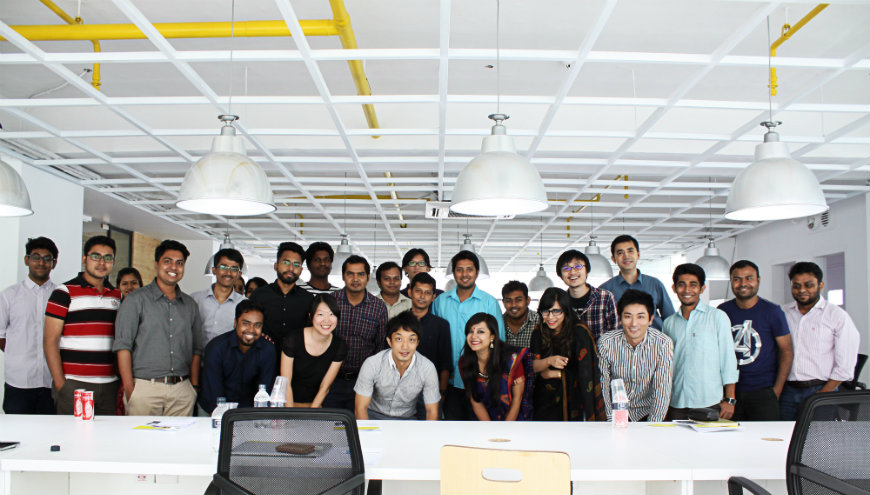Category: Business
Philippines Shakey’s Pizza Parlor Plans For IPO That Will Raise Up To US$113M Receives SEC Approval
Shakey’s Pizza Asia Ventures Inc (SPAVI) is all set to go public listing in the Philippines after the Securities and Exchange Commission (SEC) approved its initial public offering (IPO) of up to P5.5 billion (about US$113 million) last Friday.
The details according to SPAVI’s prospectus with the SEC filed last month offers to sell up to a total of 352 million shares which consist of 202 million existing shares and 104 million new shares with each priced up to P15.58 apiece, to meet excess demand.
SPAVI appointed Deutsche Bank as the sole global coordinator and bookrunner for the IPO, while BDO Capital & Investment Corp and First Metro Investment Corp are appointed to be its joint-lead managers and underwriters.
Shakey’s Pizza Asia Ventures maiden share offering is slated on December 2 to December 8. However, its listing date is tentatively set on December 15.
According to a statement, the IPO proceeds would be used for the expansion of the firm’s in-house commissary, working capital requirements, potential acquisition and repayment of debt,
On a similar vein, Singapore’s sovereign investor GIC is also reportedly planning to sell some of its shares in Shakey’s Pizza Asia Ventures Inc (SPAVI). The Singapore’s sovereign wealth fund has previously partnered with CPGI earlier this year, to acquire a majority of the pizza business from the Prieto family, which continues to hold a minority stake in SPAVI.
The company is majority owned by the Filipino-Chinese Po Family’s conglomerate Century Pacific Group Inc (CPGI), the parent company of local listed Century Pacific Food Inc (CNPF).
The global pizza franchise originally started in the United States in 1954 and later expanded overseas to Canada, Mexico, and Japan, to name a few. The pizzeria came to the Philippines in 1975 and since then has built a network of 177 stores nationwide.
With SPAVI’s share sale finalized next month, this will add to a pipeline of public listings in Philippine Stock Exchange (PSE) joining SBS Philippines Corp. (P1.15 billion); Crown Asia Chemicals Corp. (P222.7 million); Metro Retail Stores Group Inc. (P5.6 billion); and Italpinas Development Corp. (P242 million), despite the volatility in Southeast Asian markets.
For more information, please visit https://www.shakeyspizza.ph/
By Vivian Foo, Unicorn Media
Malaysian Food Delivery Startup ‘Dah Makan’ Is In Talks With Global VCs For Their Next Funding Round
From Nasi Lemak and Roti Canai to the iconic Penang Laksa, Malaysia has a reputation of being a food paradise. It is little wonder that its hottest sector, for both startups and venture capitals, turns out to be the food delivery service.
Currently, online food orders have represented 15 percent of a massive US$70 billion market, and the figure is continuously increasing as consumers are now moving online to do everything, from online bank transactions, shopping and even ordering food for their next meal.
Many food delivery services have rise to fill this demand. Driven by technology, these food delivery services which include The Lean Canteen, The Lunch Club Asia, Chopstick Diner, Naked Lunch Box and The Rebellious Chickpea among some, work to deliver lunch to the busy Malaysian. But one startup stands out among the rest through delivering healthy, foreign options.
“Dah Makan” which in Malay, means “Have you eaten?”, is a Malaysian startup that plans to make daily eating a simple luxury as the company creates healthy gourmet for lunch and dinner which are MSG-free and crafted with the finest ingredients. These cuisines are then packed in a lunch box and delivered to the doorstep within 30 to 45 minutes. With this, healthy eating has become even more convenient and affordable.
But most importantly, the startup described themselves as a “full-stack” food delivery service, which means that they are in control of the whole value chain from menu creation, ingredients sourcing, production delivery as well as customer care. This translates into maintained quality as their orders continue to grow. Besides, Dah Makan also does not compromise on the taste buds as the kitchen is helmed by Executive Chef Shamsul Hashim, who previously worked in Sheraton and Hilton.
Co-founded by Jessica Li, Johnathan Weins and Christian Edelmann, the previous two being ex-FoodPanda team members. It was in December 2014, that the team bootstrapped their startup and tested their idea by preparing the meals out of their own apartment for friends. The venture was self-funded with only US$40,000.
In March 2015, The healthy food delivery startup has its first angel seed round, raising US$80,000 (RM340,184) from two angel investors over. Since then, the startup has used the funds to improve and expand their services where it has grown to cover around 80 percent of the Klang valley region and develop the Dah Makan’s mobile app. The funding also allowed them to relocate into a building with a bigger central kitchen, and other processes like hiring, marketing and developing their logistics.
“We are right now finalizing a larger round with several global VCs with extensive experience in e-commerce and consumer brands. It’s very important to have the right investors on board as they can have a significant influence on the future of a company,” founder and CEO of Dah Makan, Jonathan Weins told DealStreetAsia in an interview.
Although currently, the team only delivers to all major business areas in KL and selected residential areas. The startup looks forward to scaling up its target from its current 1000 orders per day to reach 10,000 in a year or two. Beyond that, Dah Makan plans to expand to Singapore and Jakarta early next year – as well as other Malaysian cities besides Kuala Lumpur, having receiving queries from people in Penang and Johor Bahru, asking when Dah Makan will come to them.
Specifics about the funding were not disclosed but Johnathan Weins, the CEO of Dah Makan, said that an announcement on the funding may come in a few months.
For more information, please visit https://order.dahmakan.com/
By Vivian Foo, Unicorn Media
Trip Free Secures Seed Funding To Offer Free SIM Card Service For Tourists In Japan
Bridge, based in Tokyo, is a provider of mobile communication and retailer information service that caters specifically to international tourists in Japan. The startup, founded in January earlier this year, has announced that its tourist information service platform, Trip Free has managed to secure a funding round from iSGS Investment Works.
What appears to be interesting is that the funding group, in October, has also invested US$12 million in a startup of a similar nature, that is a mobile application for restaurant reservation management called TORETA. The details of this investment amount or payment date, however, were undisclosed.
Though both startups deal with restaurant reservations, Trip Free, in essence, is a free SIM card service for foreigners who are visiting Japan. The Trip Free service distributes 50MB data SIM cards for free to inbound tourists to provide them with tourist information via the company’s portal website. The SIM cards are also available for usual internet use as well. But if the data communication amount exceeds the free capacity of 50MB, users will be charged for additional capacity, or obtain such capacity for free by booking a restaurant via the Trip Free website.
According to Bridge CEO Yusuke Matsumoto, he has in mind a business model charging retailers for each completed reservation, aiming at information provision for 40 million inbound tourists in 2020, in line with the Japanese government’s goal for the Olympic year visitors.
“Through questionnaires to foreign visitors in Japan, we discovered that many of them have similarly faced troubles in terms of the language barrier, internet environment as well as the understanding of maps. So, at first we came up with a solution, a kind of taxi service which takes them directly to the restaurants first,” Yusuke Matsumoto, Bridge CEO tells about the story behind the commencement of Trip Free.
However, he later gave up that method due to the bad cost balance to the service and instead prioritized the improvement of Japan’s mobile Internet connectivity. That idea led to free SIM card provision and associating customer guidance that was seen as a business opportunity to grasp the route of information provision which visitors are likely to use.
“We perform intermediation of guidance or reservation for restaurants because restaurants are often concerned about last-minute cancellations by foreigners. Preventing the occurrence of cancellations by adopting advance payment with credit cards, we allow users to use this service for free by charging restaurants 10% of the sales amount as commission” Matsumoto added.
The additional capacity will be available with about 2,000 yen (about US$18.7) per GB. Since the service adopted Soracom SIM card, Soracom’s price fluctuations might alter the final pricing. Currently, Trip Free has been distributing SIM cards at about 10 hotels or youth hostels accepting inbound tourists in and around Tokyo, and been reaching 15,000 users.
For more information, please visit http://www.trip-free.com/register
By Vivian Foo, Unicorn Media
The World’s Biggest Shopping Event: Alibaba Achieve Highest Sales Record Of US$ 17.7 Bn On Singles’ Day
As Singles’ Day 11.11 approaches again, consumers are happily celebrating their singlehood with a discounted online shopping spree. But nobody is happier than online shopping retailers as they rake in big profit from this retail frenzy.
Especially Alibaba who marked Singles’ Day with a splashy four-hour show in Shenzhen which included appearances from Hollywood actress Scarlett Johansson, ex-England footballer David Beckham, retired NBA player Kobe Bryant, and live music from One Republic.
The event kicked off at midnight on Thursday 10th November, whereby with just 52 seconds into the day, the Chinese e-commerce giant has already made over US$ 146 million, according to Vulcan Post. And as the day ends, Alibaba has made a sales record of 121 billion yuan, that is about US$17.7 billion in this 24-hour time frame., which makes it the biggest e-commerce sales day of the year for Alibaba.
Comparing this to last year’s US$14.3 billion sales, 2016 has seen a rise of 32%. And placing it into perspective, the US$17.7 billion revenue is also three times more than Black Friday and Cyber Monday combined in 2015.
Despite that, what’s particularly interesting about the sale was that a high volume of purchase was conducted through mobile. As of 1.00pm in China, the mobile usage has represented 84 percent of all sales. While it is an entirely different story in the US shopping bonanza scene, as mobile usage is typically below 35 percent of the total sales.
On top of that, the online sales extravaganza has also seen the participation of about 14, 000 brands. But the best-selling products remains to be Apple Inc., Siemens, Uniqlo, Adidas, iPhones, Nike, and Haier.
Additionally, Alibaba has also been experimenting with new technology as it has allowed users to shop in virtual department stores like Macy’s. Though the concept is still new, but no doubt it will become a more prevalent and important medium for Alibaba as virtual reality and augmented reality gain a foothold among increasing numbers of consumers. VR could also help Alibaba broaden its reach into international markets.
But despite the extravagant event that Singles’ Day now emerge, the event prior to 2009, was only considered a day for singles in China to either celebrate in terms of rewarding and cherishing oneself or as a day to plan mixers to lose their unattached status. The date 11.11 (11th November) was chosen as the number 1 symbolizes a single individual.
The festival was reinvented in 2009 as Alibaba began promoting it as a day of which Chinese consumers should treat themselves to something nice. As a result, Alibaba was able to build momentum for Singles’ Day and turn it into a discount shopping event for everyone, calling the promotion “Double 11”.
“That resonated with people,” Jane Zhang, a principal analyst with Gartner’s personal technologies research team says, “Alibaba is sending a message to the people that we will give you more discounts, so you can treat yourself even better.'” And this can often lead to impulse purchase and overspending.
On the other side of things, however, it seems that not even the new heights of the Alibaba Singles’ Day sales can stop Alibaba Stock’s Trump problem as the company’s stock NYSE: BABA listed on the New York Stock Exchange has continued to plunge. Still, Alibaba’s stock dipped 1.4% on Friday, to $92.99, capping a three-day selloff that left the shares 7 percent lower. This is largely due to the concern that President-elect Donald Trump will follow through on his protectionist rhetoric against China.
For more information, please visit https://www.alibaba.com/
By Vivian Foo, Unicorn Media
Japan’s Sekai Lab, A Crowdsourced App Development Service Secures US$2.5 Million For Market Expansion
Tokyo-based Monstar Lab, the company providing crowdsourced offshore app development service Sekai Lab, announced on Friday that it has secured 250 million yen, which roughly translates to about US$2.5 million.
The round was participated from Gogin Capital, the investment arm of San-In Gogo Bank and Resona Capital, the private equity and venture capital arm of Resona Holdings, in addition to existing shareholders.This follows the company previous US$3.3 million funding from Pasonatech and DG Incubation.
Getting Gogin Capital on board as a shareholder may be related to the fact that Monstar Lab has a development location at the similar location of Matsue, Shimane Prefecture. This will thus provide the opportunity of offering existing offshore app development services, especially to help and improve the situation in and around Shimane where companies still struggle with the lack of system engineers.
Founded in December 2013 by Hiroki Inagawa, Sekai Lab is a solution to match Japanese companies with skilled engineers in Asian countries. In other words, Sekai Lab acts as a crowdsourcing platform which allows companies in Japan to find their entrusted development platform in affordable markets such as Vietnam, China, and Bangladesh, which makes up the top three in the list, to produce websites, apps, games, and other online services.
The startup also provides translation and localization services to ensure that language barriers will not be an issue. Additionally, the startup also claims that clients in Japan, Singapore, and the US can save up to 75 percent on development costs by outsourcing with Sekai Lab.
To date, Monstar Lab offers app development in 17 countries worldwide which include China, Bangladesh, and Vietnam but the startup still continues to further expand their markets. In October, the company’s CEO Hiroki Inagawa visited Jordan, and this hints at the possibility of expansion into the Middle East from Asia where they now have multiple development locations.
The funds raised this time will be used for such market expansion efforts. With its established international resources, Sekai Lab can provide comparatively inexpensive and high-quality offshore development for projects from Japan and elsewhere.
As its name implies, ‘Sekai’ which is translated to “the world” in Japanese shows the startup’s ambition in taking on the global market, in both name and deed. To change the world with its technology.
For more information, please visit https://monstar-lab.com/jp/
By Vivian Foo, Unicorn Media





